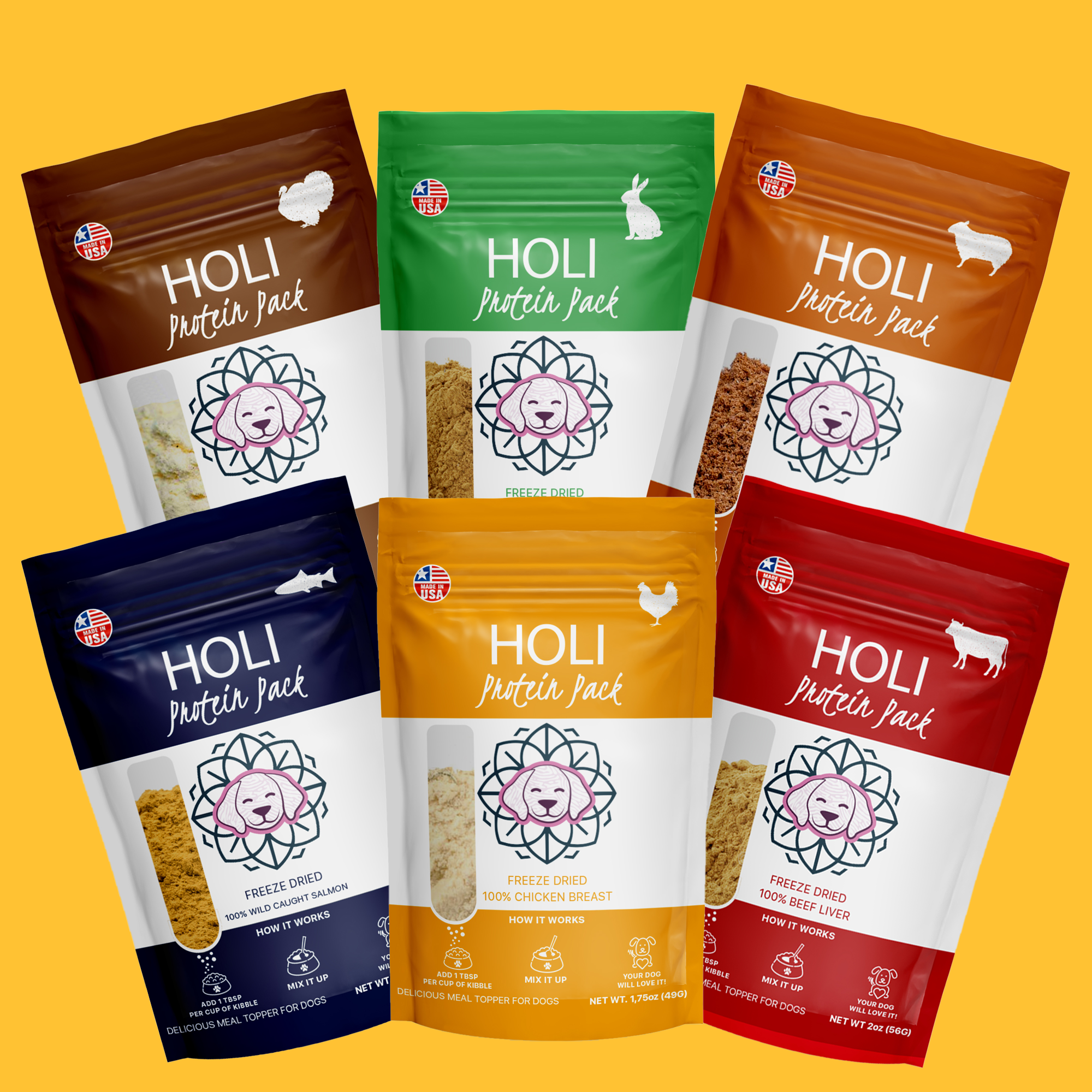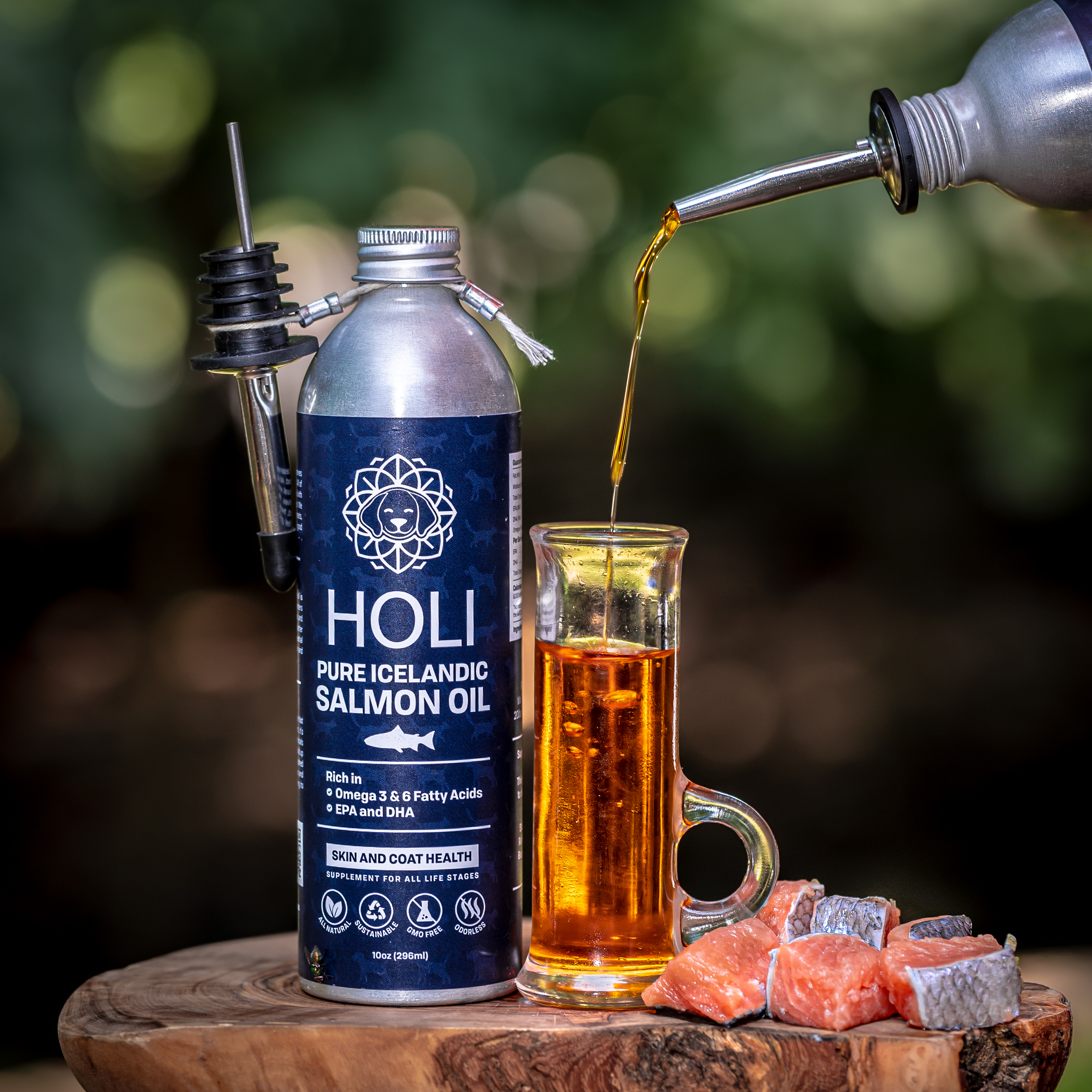Navigating Through Your Dog’s Food Allergy
When our pups start itching and shedding, it can send us into a tizzy, wondering if it’s fleas, dry skin, seasonal or food allergies, or something else. We’re going to discuss how to tackle the issue of a food-related allergy, as well as note some common allergies to look out for.
It's important to note that dogs can develop allergies to any type of food, so it's always best to consult with your vet if you think your dog could have a food allergy. They may recommend an elimination diet to help identify the allergen and develop a proper treatment plan.
Most common allergies are to proteins rather than grains, despite misconception. Dogs can be more prone to protein sensitivities for a few reasons:
Genetics
Genetics: Certain breeds may be more prone to developing protein sensitivities due to their genetics. Labs commonly experience allergies to soy, poultry, and beef, while Boxers are known to experience allergies related to foods with high grain content like corn or wheat. However, not all purebred dogs will have allergies, and many mixed breeds may have allergies as well.
Repeated Exposure to Certain Proteins
It is not uncommon to think that exposing your dog to something over a long period of time will decrease the chances of developing allergies, but this is actually not true! When introduced to an allergen, the body produces antibodies. With repeated exposure, the body produces more antibodies, and eventually this triggers an allergic response. Dogs that are repeatedly exposed to certain proteins may develop sensitivities over time. This can happen if a dog is fed the same food for an extended period of time or if they are frequently exposed to a certain type of protein in treats. HOLI uses a superfood-based kibble with the ability to rotate proteins to keep allergies at bay. While this may not cure allergies, it may help to reduce the chance of them developing.
Environmental Factors
Environmental factors: Exposure to certain environmental factors such as pollution or toxins can weaken a dog's immune system, making them more susceptible to protein sensitivities.
If you suspect your dog has a protein sensitivity or allergy, it's important to consult with your veterinarian. They can help identify the allergen and develop a treatment plan to manage your dog's symptoms.
“The most common food allergens in dogs are proteins, especially those from dairy, beef, chicken, chicken eggs, soy, or wheat gluten. Each time a pet eats food containing these substances, the antibodies react with the antigens, and symptoms occur. Virtually any food ingredient can produce an allergy, however. Proteins are the most common culprits but other substances and additives can also be responsible.”—VCA
Here are some tips to avoid food allergens in dogs:
Read Labels Carefully
Look for foods that are free from common allergens such as beef, chicken, dairy, egg, fish, lamb, pork, rabbit, soy, and wheat.
Consider a Limited Ingredient Diet
Limited ingredient diets contain fewer ingredients, making it easier to identify and avoid potential allergens. These diets often feature novel proteins such as venison or rabbit that your dog may not have been exposed to before. HOLI makes identifying allergies by protein elimination trials easy. You can see which proteins have an effect on your pup without the fear of an upset tummy from switching their main food.
Rotate Your Dog's Food
Repeated exposure to the same protein can increase the likelihood of developing an allergy. Consider rotating your dog's proteins with HOLI’s protein packs to help reduce the risk of developing sensitivities, and to rule out any existing allergies.
Talk to Your Dog's Inner Circle
Parents of sensitive dogs know the panic of someone offering a treat. What is in it? What brand is it? Are their fillers? Talking to your walker, trainer, daycare, sitter, and family can reduce the chance of an allergic reaction. It’s common for their grandpawrents to want to offer table scraps, or they go out and buy the cheap cookies from the grocery store to “spoil” the dog. Make sure your inner circle knows that your dog is sensitive, and be sure to suggest they use one of your treats instead of theirs, or ask them to buy some single-ingredient treats instead.
Consult With Your Vet
If you suspect your dog has a food allergy or sensitivity, it's important to consult with your veterinarian. They can help identify the allergen and develop a treatment plan to manage your dog's symptoms. They may also recommend allergy tests or the elimination trial mentioned above to help identify the allergen.







